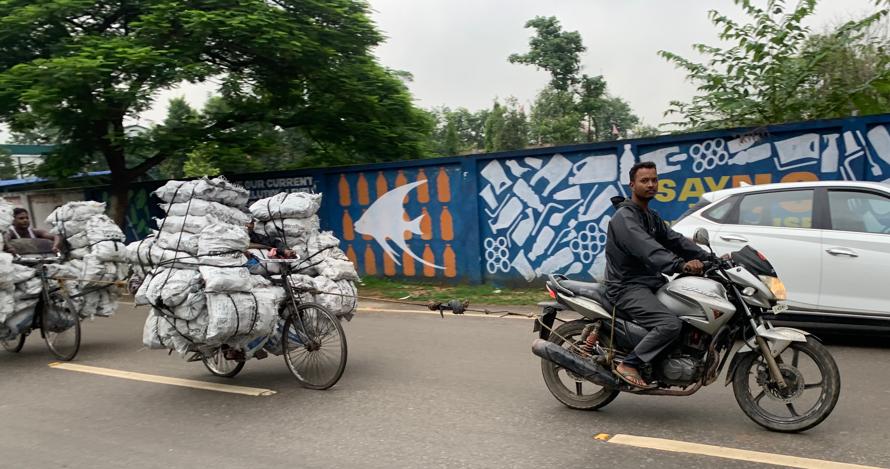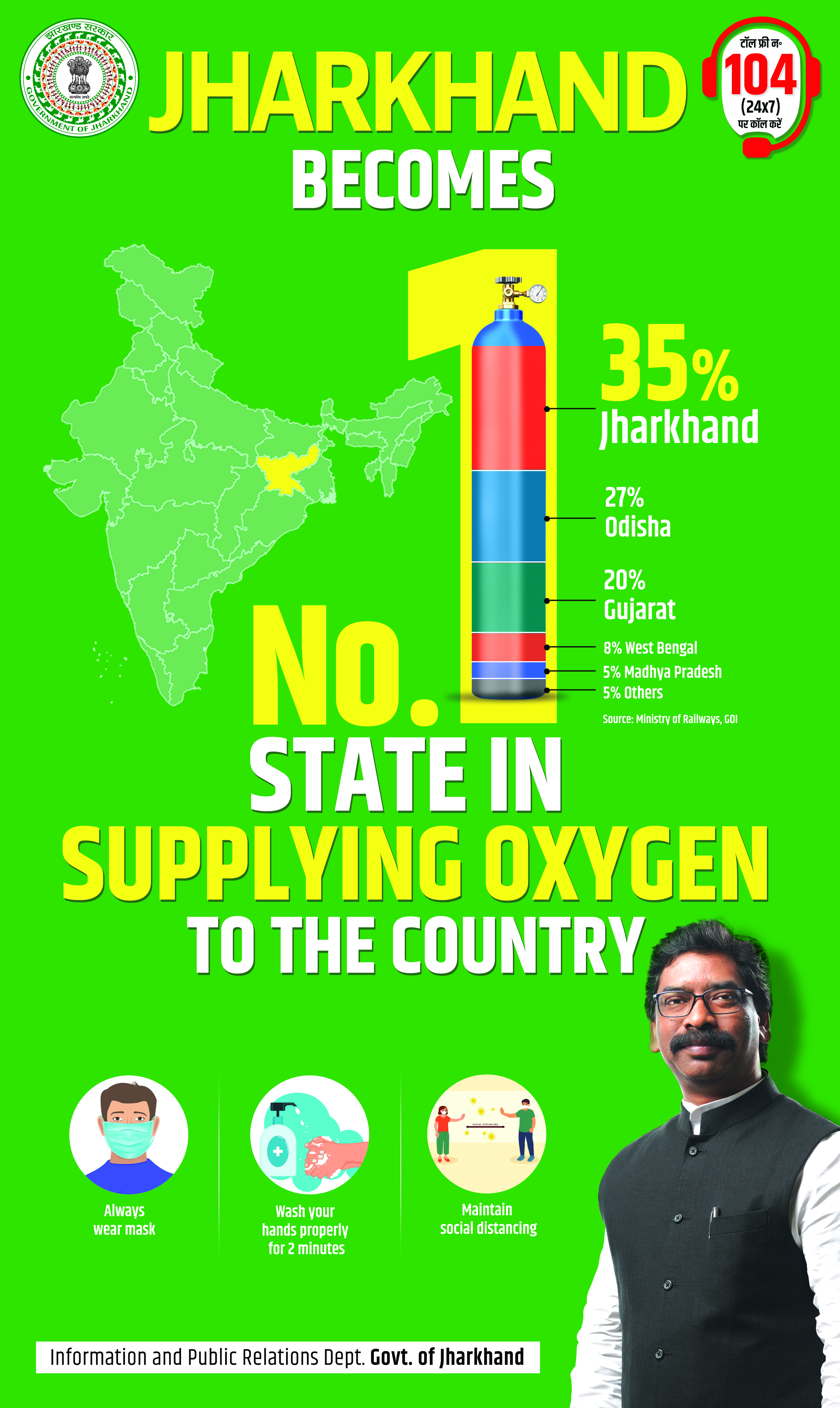
*A Mo -bike rider drives coal cyclists by tying rope with their cycles on road in Ranchi.
The distance between the abandoned mine in Patratu and Ranchi, on a road, is about 25 miles in Jharkhand. A coal truck rattled towards a railway station.
On a lane running parallel, jute bags containing 250kg of coal are tied to the frame of Mahesh Munda's bicycle.
He is a part-time farmer and peddler of coal. "Paddy, wheat and vegetables only give me money half the year. But I can make about 500 rupees each coal journey, all year round," he says, flanked by fellow coal cyclists or "coal cycle wallahs".
They have been sweating to ride their coal-loaded cycles for decades. Now, there is a remarkable change visible on their coal cycles. The change was introduced by themselves and mo bike riders.
In the past, coal cyclists used to either move on foot or pulled their cycles to cover the long distance to sell and earn money. Now, they were pulled by mo- bike riders who ties the bike with coal loaded by cycles with rope. This makes mo bike owners earn as coal cyclists pay him.
This suits both of them. While mo bike riders carried driving and ownership licence/ certificate, the cycle wallahs illegally gather coal from a mine owned by Central Coalfields, the state-owned company that dispatches coal to power stations, steel mills and India's biggest corporations.
At the adjoining coal washery, as the conveyor belt whirrs and black sludge is ejected, women in saris illegally sift the rocks for hidden, lighter lumps of coal.
Once gathered, the women (and sometimes the cycle wallahs) will carry the coal across the river to a makeshift cooking ground on the river bank.
Here, they cook off some of the ash, making the coal cleaner and more valuable. Munda and his neighbours will collect this coal from a handover spot in a forest on the edge of the mine. The cycle wallahs then tie the coal bags to their bikes.
Later, they will set off on their long journey to sell the coal, travelling at night to avoid the heat.Each basket of coal will fetch 30 rupees for the pickers when sold on to the wallahs – men, women and children who balance 500-550 of coal on their bicycle frames.
They push loads for up to 90 miles to a village or town, where the coal will be traded at 1 rupee a kilo. Their heaviest loads – pushed by two or three peddlers – can weigh up to 1.5 tonnes.
As India's overlooked energy suppliers – a vast, unrecorded network – the cycle wallahs keep brick kilns, sponge-iron factories, roadside eateries and chai stalls ticking over, and families in city and village alive. About 45,000 coal cycle wallahs transport 7.5 tonnes of coal each day in Jharkhand alone. Yet they are outlaws: buying a bag of coal on a city or village street from them is proscribed by the penal code and laws governing forests and coal-bearing tracts.
De facto, they are India's largest “criminalised” community. Half of the coal cycle wallahs of Jharkhand belong to lower castes and tribes listed by the government as among the most deprived social groups.
Many had survived by gathering from forests or cultivating land. But 40 years of mass displacement, as forests were cleared for the expansion of coal mines, left 67% of coal cycle wallahs landless. Of those who still farm, 22% have up to an acre of land.
Increasing demands on a water table ravaged by the coal industry, together with population increase, have left their fields insufficiently watered to bear them a living.
Only up to a fifth of those living in coal tract areas are employed by coal companies. Lower castes and tribes in the state are waiting for politicians to deliver alternative livelihoods. When coal mines were nationalised in the 1970s, "a male in each family would have been given a job working in a coal field.
But that stopped once [state-owned] coal companies started using diggers and machines", says Dinkar Manjhi, ex-Ramgarh's representative in Jharkhand's state assembly.
"People don't have an alternative but to steal from the mines," he adds. "Before, people could buy coal from a Coal India depot in small amounts. But now [coal] supplies just go to industry."
Since they earn money by the hardest of hard work by riding the cycle loaded with coal and moves waking for miles, every onlooker gets attracted by them. In this state, where corruption was rampant, the cops shower mercy and don’t collect “ cuts” from them, an investigation revealed.
